- Home
- Aharon Appelfeld
The Retreat
The Retreat Read online
BOOKS BY
AHARON APPELFELD
Badenheim 1939
The Age of Wonders
Tzili: The Story of a Life
The Retreat
To the Land of the Cattails
The Immortal Bartfuss
For Every Sin
The Healer
Katerina
Unto the Soul
Beyond Despair: Three Lectures and a Conversation with Philip Roth
The Iron Tracks
Copyright © 1984 by Aharon Appelfeld
All rights reserved under International and Pan-American Copyright Conventions. Published in the United States by Schocken Books Inc., New York, and simultaneously in Canada by Random House of Canada Limited, Toronto. Distributed by Pantheon Books, a division of Random House, Inc., New York. Originally published in the United States in hardcover by E. P. Dutton, Inc., New York, in 1984.
SCHOCKEN and colophon are trademarks of Schocken Books Inc.
Library of Congress Cataloging-in-Publication Data
Appelfeld Aron.
The retreat / Aharon Appelfeld;
translated from the Hebrew by Dalya Bilu.
p. cm.
Previously published: 1st ed. New York: Dutton, c1984.
ISBN 0-8052-1096-2
I. Bilu, Dalya. II. Title.
PJ5054.A765R4 1998 892.4′36—dc21 97-28634 CIP
Ebook ISBN 9780805243482
Random House Web Address: http://www.randomhouse.com
v4.1
a
Contents
Cover
Books by Aharon Appelfeld
Title Page
Copyright
Chapter One
Chapter Two
Chapter Three
Chapter Four
Chapter Five
Chapter Six
Chapter Seven
Chapter Eight
Chapter Nine
Chapter Ten
Chapter Eleven
Chapter Twelve
Chapter Thirteen
Chapter Fourteen
Chapter Fifteen
Chapter Sixteen
Chapter Seventeen
Chapter Eighteen
Chapter Nineteen
Chapter Twenty
Chapter Twenty-one
Chapter Twenty-two
About the Author
ONE
They drove south in an old coach on a dirt road. One after the other the landscapes slipped past, the summer in all its glory, suffocating with the weight of its scents and sap. Now they turned and began to climb the mountain. The coachman drove the horses slowly, without goading them on. For many hours the mother and daughter had not exchanged a single word, leaning back on the shabby seat, each sunk in her own thoughts.
Suddenly the mother said, “Where are we going? I don’t understand.” She said these words without turning her head. The daughter did not respond. Her strained face creased in something resembling a smile.
“I asked you a question,” said the mother.
“I don’t understand, Mother.”
At the sound of these words the mother jerked her head sharply round, threw her daughter a look, and leaned her head back against the seat without another word. The daughter covered her forehead with her right hand.
For two months the quarrel between them had raged. Now all that was left was an echo, not lacking in sharpness, however. The storm refused to subside.
The plateau unrolled before them, flat, broad and cultivated. The trees were bright green. The mother was familiar with these passing landscapes from her travels. She had never examined them at close quarters, always too busy and burdened. Now the charming scenes seemed to approach and beckon, pressing up against her eyes, but she was tense and irritated, waiting impatiently for the end of this journey, which for some reason was dragging on and on. The coachman and his horses had joined forces against her.
“I don’t understand why it was necessary for you to trouble yourself. There are places to which a person should travel alone,” said the mother in a low voice, with great restraint.
“I won’t let you go alone.”
“Please don’t exaggerate,” said the mother, tightening her lips.
The truth was that it had been her own decision to come here. At first her daughter had pretended to oppose the idea but in the end she had consented, she didn’t care any more. Now all they wanted was to get away from each other. But the coachman, as if to spite them, refused to hurry. He drove the horses slowly, in a kind of calm indifference, as if he had all the time in the world.
“Is it still far to go?” the mother asked him impatiently.
“A fair way.”
“In that case, will you make your horses go faster, please.”
“The horses are not used to dirt roads,” said the coachman in a heavy, rustic voice. “They’ve grown accustomed to city ways, for our sins.” He pronounced the last word in the old-fashioned, religious way.
“And if I give you something extra, will you urge them on?”
“What are you talking about?” the daughter interrupted.
“It’s none of your business,” said the mother in the way she used to speak to her when she was a child.
“I am not in the habit of goading my horses,” said the coachman. “This is a bad road. What’s the matter, aren’t the seats comfortable?”
“No, to tell the truth,” said the mother in a voice left over from bygone days, a capricious voice.
“I won’t change my ways for you, my lady.
Money can’t buy everything, you know. Horses deserve our pity too.”
“Horses are more important to you, I see, than people.”
“The creator created them too, did he not?”
The mother knew this tone only too well, with its infuriating affectation of piety.
The daughter said, “What’s the point of arguing.”
“I’m still allowed to talk, aren’t I? I won’t give up the right to talk.”
“Do as you please,” said the daughter, and held her tongue.
The horses trudged heavily on. The old coachman muttered to himself, “The devil only knows why I let them tempt me. This road wasn’t made for coaches, it’s fit only for cattle.” The mother knew there was nothing serious in this complaint. All he wanted was to put the price up. She laughed. The daughter was surprised by her laughter and said, “What’s so funny?”
“Can’t you hear?”
The coachman turned his head and said, “I wouldn’t make this climb again for all the money in the world.” And in truth the road was tortuous, steep and full of stones, but the scenery on both sides was magnificent in its simplicity.
In the winter of 1937 the mother had still played a few small parts in the theater. And that was the end. No one had given a farewell party for her, and it soon transpired that her pension too was in question. For a few months she ran from place to place, called on old friends, knocked on doors. In the end, penniless and at the end of her tether, she arrived on her daughter’s doorstep. Her daughter did her best but her husband, George, did not make her welcome. He did not think much of actors.
For two weeks she stayed in her daughter’s house, upsetting everyone and even quarreling with her grandsons. Her daughter stood between them, buffeted by the storms. One night the mother announced: “I can’t stay here,” and she left.
Her daughter caught up with her at the station. For a few days they ran around the town together. Once more she called on old friends, visited labor exchanges. She was determined: I must work, never mind at what. But no one was prepared to employ an aging actress, not even as a shop assistant. They were on the point of going back. The daughter promised to have it out with her husb
and. Everything would be all right. On their way to the station they encountered the old headmaster of the high school. He was regarded as a liberal, broad-minded man. Seeing the two women in their distress he said, “I have an idea. Not far from here is a mountain retreat, a spiritual center on a sublime peak. I myself once took part in one of their debates. If I’m not mistaken, there is a very satisfactory hotel there too.”
That was the place, they all agreed.
On their way home she regretted her haste. She suspected that the place was some kind of Jewish home. Questions again, and endless talk—she had always loathed them. But when they got back, late that night, she quickly realized that anything was better than this hell, even a Jewish retreat.
“When will we arrive?” the mother roused herself from her thoughts and asked the coachman.
“Early this evening, God willing.”
“Why bother God all the time,” said the mother impatiently, sick of all this affected piety.
“What can I do? We still hold by the old ways and still believe in Him. And you, I take it, are an unrepentant atheist.”
“Yes,” said the mother, deliberately provocative.
“I,” said the peasant in a peasant voice, “would never dare provoke Him on such a steep, bumpy road.”
“I’m too old to change now,” said the mother impatiently.
“I understand,” said the coachman.
In her heart she admired this primitive rawness. Once upon a time, when she was still a young woman, she had entered into conversation with them on the course of her travels, and sometimes she had teased them too. Over the years she had come to know their language, their stupidity and also their wisdom.
The short exchange with the old coachman gave her back a fleeting taste of different, younger days, and she asked, “Have you never been up there before?”
“Never. Who lives there?”
“Jews.”
“And you are going to them?”
“Yes.”
“I can’t believe my eyes.”
“What can I do about it?”
“But you don’t look like a Jewess, my lady.”
“Nevertheless, the truth can no longer be concealed.”
The daughter sat huddled in her corner without saying a word, full of resentment at the length of the journey, her mother’s endless chatter, and all the trouble she had caused her in the past few months. The thought that many more scandals were still in store preyed on her mind. She longed for her home and her children.
“Mother,” she said, without any special emotion.
“What?” The mother pricked up her ears.
“Don’t forget to write to me.”
“You know I don’t like writing letters. Writing letters drives me out of my mind.”
“Only a word or two.”
“Nothing bad is going to happen to me. When all’s said and done, the Jews aren’t going to do me any harm.” She pronounced the word “Jews” the way gentiles pronounced it.
“As you wish,” said the daughter. “You must do as you see fit.” In her arguments with her mother she always came off second best.
The afternoon hour hung silently over the plateau. The ascent was gradual but they could sense quite clearly that the air was already different, sharp and intoxicating. The expression on the daughter’s tense face grew more and more frozen. The events of recent months, which had begun by embarrassing her, had ended by filling her with rage. As for the mother, the expression on her face kept on changing until it settled into one of pride. Her daughter knew this expression well. It always gave her a disagreeable feeling—her own inferiority.
Her mother was, indeed, better educated than she was. She had not read much in recent years, but the knowledge she had accumulated in high school and later on at the acting academy served her as a hidden treasure trove: modern literature and the classics, theater and music. The daughter too had graduated from high school, but it was only a commercial college, which made no attempt at providing a humanist education but was content to turn out respectable housewives. And that’s what she was, a housewife: she had reared three sons, she cooked hearty meals for her husband and did the family washing at night. The mother exploited her advantage to the utmost, and occasionally ridiculed her daughter’s ignorance. The coachman now knew that he would be paid extra for the journey, and he was content. He did not urge the horses on, but neither did he grumble.
“And what have they got up there?” he asked in the tone of a domestic servant who permitted himself a personal question from time to time.
“A spiritual center,” said the mother, knowing that the coachman would not understand the meaning of the words.
“I don’t understand,” said the coachman.
“Have you never heard of Martin Buber?” She now addressed him as she would a servant of her own age.
“No, my lady, never.”
“I beg you, engrave the name upon your heart. You’ll thank me for whispering it in your ear one day.”
“Thank you, my lady. Is the gentleman a priest, or a saint?”
“A philosopher.”
“A philosopher. I understand.”
The mother, to tell the truth, had never taken much interest in these famous names. From her youth she had felt an aversion for all things Jewish. Jewish actors and writers counted for nothing in her eyes. She loved the classics, the living vernacular, speech without sophistry. Now all this too was remote from her, all she wanted was to amuse the coachman and forget herself for a moment. And the coachman was happy to respond to her invitation.
“I’ve known many a Jew in my time. You might say I know them well. And it seems to me that I can tell them from a distance. But you, my lady, look so much like one of us that if I had to swear on it, I would swear.”
“Appearances are deceptive, not so?” said the mother softly.
“But to such an extent. I would never have guessed.”
“The devil isn’t as black as he’s painted.”
“I agree with you, my lady, with all my heart,” said the coachman ingratiatingly.
“What is it that makes them so different?” she inquired in an interested tone.
“Nothing at all,” he said slyly.
“You’re exaggerating, I think.”
“All men are equal in His eyes, not so?”
“And yet, the Jew is still a Jew.”
“The Jew is a merchant. And what of it if he is. But you, my lady, do not possess a single Jewish feature.”
“Thank you.”
“I mean it in all seriousness. You’re a fine-looking woman.”
“That’s ridiculous,” said the mother, and burst out laughing.
The conversation proceeded pleasantly enough. The coachman, a sturdy fellow, told her that he had left home as a lad because of a quarrel over a trifle and gone to town. At first he had worked as a porter and a hired coachman. Now he was independent. The mother knew that this tale was not as innocent as it sounded. The trifling quarrel, in all probability, meant that he had stolen his father’s money and perhaps wasted it on drink as well. Over the years, during the course of her many travels, she had learned to listen to them and to like their crude naïveté, the way they mixed up fact with fantasy.
The coachman stopped the horses and said, “Time for a little rest.” The daughter woke from her trance and said, “What are you thinking of? It’s already three o’clock.”
“What of it.”
“I have to get home on time.”
“We’ll get there. Don’t you worry about the time.”
“I am worried about it.”
“When a man sets out on a journey he should leave his watch at home. He knows the hour of his departure, but never the hour of his return. Time is in the hands of the creator.”
“I don’t know what you’re talking about.”
“My dear lady,” he said, turning his head around to enlist the support of the mother, “explain the meaning of time to h
er. We of the older generation know what it means, not so?”
At this the daughter jerked her head sharply and said in a voice full of angry indignation, “You promised us that we’d be there by three. And just look where we are now. I have a home and children waiting for me.”
“Take it easy, my lady,” said the coachman in an offensive drawl. “It’s a wise man who knows the truth of the saying ‘Man proposes but God disposes.’ Isn’t that so?”
The mother did not rush to her daughter’s aid. She was busy watching the coachman’s hands. He took the fodder bags out of the box and tied them to the horses’ heads, muttering to himself, “They’re hungry. They’re hungry.” She was enchanted by the movements of his hands, so quiet they were hardly perceptible.
“And you, have you nothing to say to him?” The daughter turned on her mother.
“What is there to say? Can’t you see, he’s feeding his horses.”
“And I left the house alone, the children.”
Who asked you to, she wanted to say, but on seeing her daughter’s strained face she controlled herself and said, “It won’t be long now. It won’t be long.”
The daughter ground her teeth.
The mother thrust her neck out of her coat collar and scrutinized her daughter. Her only daughter, her love and her hope. All that was good and maternal in her she had yearned to give her. True, the theater and the provincial tours had taken her away from home, but all her leisure hours, and there were many of them, had been devoted to her daughter. She had been a quiet, obedient child who read a lot and at the age of eight even showed signs of a certain musical gift. This discovery filled the mother’s heart with a secret joy. She herself would take her to her lessons and watch her play. At the age of twelve, for no apparent reason, she abandoned the piano and refused to continue her lessons. For a few weeks the mother had coaxed her but when she persisted in her refusal, the mother left her alone. She enrolled in the commercial college and her grades were satisfactory. When she turned fifteen her face changed, her nose lengthened, her mouth tightened: a strange seriousness. In the mother’s heart there was no doubt: the features forming the young face were her father’s. This distressed her, of course.
The daughter grew up and year by year her face changed. Her nature was placid and lacking in any inner fire. She went on reading and going to concerts like any other middle-class girl, but she was not Lotte’s daughter—a girl with no passions or ambitions. At the age of twenty she married a man ten years older than herself, an Austrian by birth with a small country estate.

 Long Summer Nights
Long Summer Nights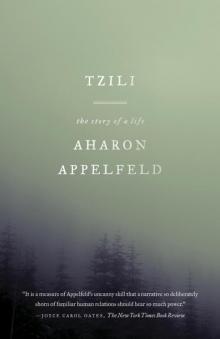 Tzili
Tzili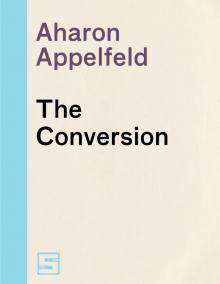 The Conversion
The Conversion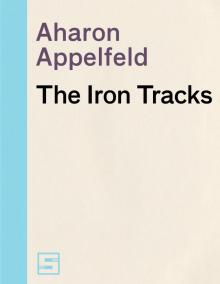 The Iron Tracks
The Iron Tracks All Whom I Have Loved
All Whom I Have Loved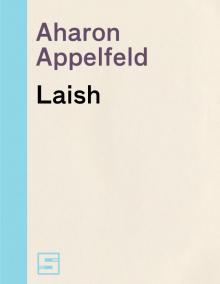 Laish
Laish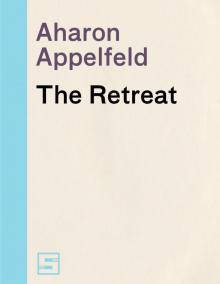 The Retreat
The Retreat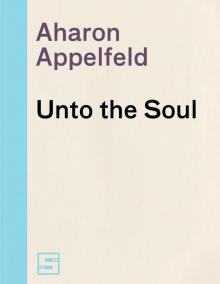 Unto the Soul
Unto the Soul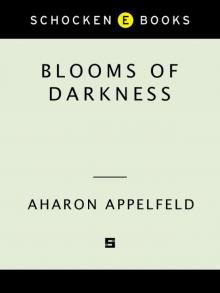 Blooms of Darkness
Blooms of Darkness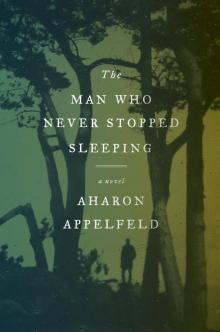 The Man Who Never Stopped Sleeping
The Man Who Never Stopped Sleeping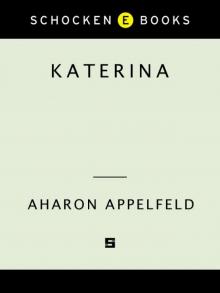 Katerina
Katerina Until the Dawn's Light
Until the Dawn's Light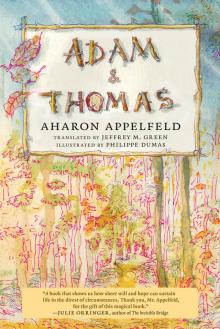 Adam and Thomas
Adam and Thomas Suddenly, Love
Suddenly, Love